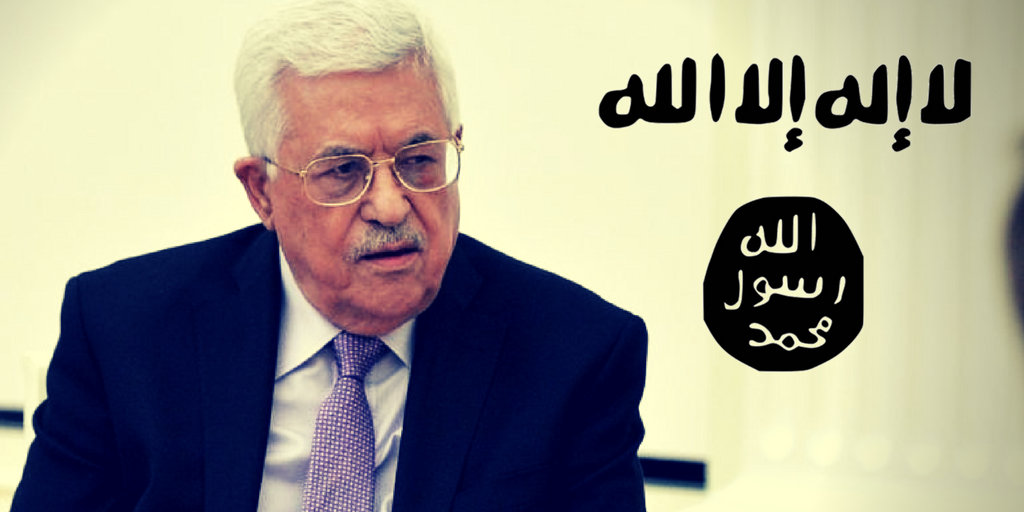The creation of a PLO state will not make the Middle East more stable.
Eight years from now, China will outstrip the US as the world’s largest economy. In three years, Israeli GDP per capita will outstrip Japan’s. These two data points are useful to bear in mind as we consider the Trump administration’s sudden decision to go retro and embrace the Clinton administration’s foreign policy on Israel from the early 1990s.
When then US president Bill Clinton decided to embrace Yasser Arafat, the architect of modern terrorism, it seemed like a safe bet.
The US had just won the Cold War. With the demise of the Soviet Union, US dominance in the Middle East was unquestioned. Even then Syrian president Hafez Assad provided symbolic support for the US-led war against his Baathist counterpart Saddam Hussein.
Assad had no choice. His Soviet protector had just disappeared.
The PLO, for its part, had never been weaker. The Gulf states reacted to Arafat’s support for Saddam in the 1991 war by cutting the PLO off financially. The Palestinian uprising against Israel, which broke out in 1988, sputtered into oblivion in late 1990 because without Arab money, Arafat and his cronies couldn’t pay anyone to attack Israelis.
As for the Arabs, operating under the US’s protective shield, in 1993 the Arab world appeared impermeable to internal pressure. No one imagined that Arab nationalism or the reign of presidents for life, kings and emirs would ever be questioned.
As for Israel, its decision to bow to the US’s demand during the Gulf War to stand down and do nothing in response to Iraq’s unprovoked Scud missile attacks was informed by a sense that Israel could not afford to stand up to America. While many debated the wisdom of this conclusion, the fact was that Israel in 1991 was economically weak. Its per capita income stood at around $15,000. Its economy was entirely dependent on the US and Europe.
With America’s power at an all-time high, Clinton and his people had every reason to believe that with minimal effort, they would be able to reach a peace deal between the Israelis and the PLO.
In the event, the assessment that peace would be an easy effort turned out to be entirely wrong. Arafat and his deputy Mahmoud Abbas played the Americans for fools. Worse, they humiliated Clinton.
In July 2000, when Arafat rejected Israel’s US-supported offer of peace at Camp David, it wasn’t just the notion of peaceful coexistence with Israel that he rejected. He rejected the notion that you cannot stand up to America.
Clinton aggravated the deleterious effect of Arafat’s action when rather than either retaliate against the PLO chieftain or at a minimum cutting his losses and walking away, Clinton spent the last months and weeks of his presidency pursuing Arafat and begging him to agree to a deal. Clinton went so far as to present his own peace offer to the PLO chief with less than a month left in office. And Arafat stomped away.
A lot of people were watching what happened. And a lot of people drew the logical conclusion: the US is a paper tiger. You can humiliate it. You can attack it. And the Americans, secure in their belief that unlike every other world power in history their primacy was permanent, would do nothing to you.
When Clinton left office, it wasn’t just the peace process that lay in shambles. America’s reputation was also massively weakened. In contempt of Washington, North Korea was racing toward the nuclear finish line.
Iran was taking over south Lebanon through Hezbollah and murdering Americans in Saudi Arabia.
India and Pakistan went nuclear.
And al-Qaida bombed two US embassies and one US naval destroyer.
How could Clinton pay attention to these things when he was captivated by the notion that once a peace deal was signed with the PLO, all the problems of the region would disappear?
He couldn’t.
And in time, neither could his successors. George W. Bush and Barack Obama each in time adopted Clinton’s near religious faith in the curative powers of embracing the PLO at Israel’s expense. Why should the world’s sole superpower deal with the difficult and bloody pathologies of the Islamic world? Why should it consider modernizing its alliances with its Asian partners as China rose seemingly inexorably? Why should it consider its inability to expand the US economy by 4% a year as a national security threat when all would be well the minute that the PLO agreed to a deal with a diminished and enfeebled Jewish state?
And so three American presidents have wasted 24 years ignoring serious and growing threats and changing global conditions while embracing the fantasy that the PLO holds the keys to global peace, or the ultimate deal or American exculpation of the sins of its past.
Israel for its part has followed its American friends down the garden path, even as the rationale for doing so has vastly diminished.
While the Americans surrendered their universities to the fantasies of anti-American multiculturalists and grievance mongers, Israel has modernized its markets, strengthened its society and revolutionized its economy.
One of the reasons Israel didn’t dare to question the Americans in the early 1990s was its terrible credit rating. In 1988 Israel’s credit rating was – BBB. And it needed to borrow billions of dollars to pay for the absorption needs of a million Jews from the former Soviet Union who moved to Israel from 1989 through 2006. US loan guarantees were the only way Israel could borrow money at affordable rates.
Over the intervening quarter century, those million Jews were the major driver in developing Israel’s information economy.
The main reason that Israel has maintained its slavish devotion to America’s PLO fetish is that our leftist elites, that dominate the media, share it. Like the American foreign policy discourse, Israel’s elites’ assessment of Israel’s priorities has remained frozen in time for the past 24 years.
The same cannot be said of the public.
The vast majority of Israelis have greeted President Donald Trump’s sudden embrace of his predecessor’s obsession with the PLO with surprise and at best bemusement.
“Well, good luck with that,” is the most polite response.
It isn’t simply that unlike the American foreign policy establishment, the vast majority of Israelis are convinced there is no deal to be had with the PLO. Most Israelis simply don’t care anymore. They view the PLO and the Palestinians as largely irrelevant.
When Israeli leaders outside the leftist elite’s echo chambers prefer to speak with foreign audiences about anything beside the Palestinians, it isn’t because they are trying to avoid an unpleasant conversation. It is because they don’t see the point anymore.
The notion that a PLO state will make the region more stable as far more coherent Arab states collapse is absurd.
The notion that it is necessary to empower the PLO to win Arab allies when the Arabs are beating a path to Israel’s door begging for help in defeating Sunni jihadists and Iran is ridiculous.
The notion that Israel’s ability to expand its markets is contingent on peace with the PLO when every week more world leaders descend on Jerusalem to sign trade deals with Israel is not even worthy of a giggle.
As for demography, the American hysteria is bizarre.
The Palestinians already have passports and vote – when they are allowed to – in their own elections. Why would Israel be expected to let them vote for the Knesset?
Beyond that, Jewish immigration to Israel remains high. Israel’s Jewish birthrates have surpassed its Muslim birthrates both within sovereign Israel and in Judea and Samaria.
So why would Israel give up Jerusalem for demography?
As for Israel’s Arab citizens, the truth it that but for the meddling of foreign governments, Israel’s Arab population would have integrated fully into Israeli society a decade ago.
Next week, President Trump will arrive here. His meeting last week with PLO chief Mahmoud Abbas and statements by administration officials since make clear that Trump intends to be the fourth US president to get sucked into the PLO vortex.
Trump will arrive in Israel believing that his campaign pledge to “Make America Great Again,” and his goal of reaching the “ultimate deal” with the PLO are complementary aims.
If Prime Minister Benjamin Netanyahu explains nothing else to Trump when they meet next week, he should explain to him that the two goals are mutually exclusive. And if he has any extra time, Netanyahu should give Trump the details of the massive price America has paid, since 1993, for its three past presidents’ obsession with the PLO.
Originally published by the Jerusalem Post.






